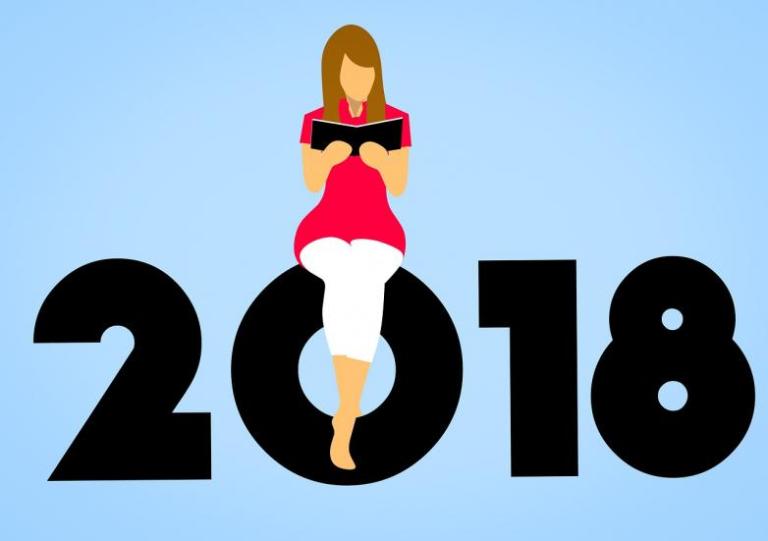New Year’s resolutions tend to be demonstrations of the bondage of the will. We decide to do something that will make us better persons, we really commit to it, we make a good start, and then in just a few days our resolve falls apart. We fail, beat ourselves up, and resolve not to make any more New Year’s resolutions.
That can be a salutary lesson. We cannot keep even our own made-up and self-imposed laws. We must be utterly dependent upon God’s grace.
But I think there is still a place for New Year’s resolutions. The new year begs for new beginnings and new ventures. And we can all use discipline. We need to exercise our wills in order to learn how to control our wills (even if only in a very minor way). We need practice with our wills.
Character-changing resolutions are hard–“I won’t lose my temper so much.” “I will stop yelling at my kids.” “I will start liking my co-workers”–unless you have a change of character, one that enables you to do these good works. Changes of character usually don’t come through resolutions but through traumatic events and religious breakthroughs.
Externals are more under our control, though not completely. We can come closer to performing the first use of the Law, the external obedience that makes an orderly life and orderly society possible, even if external actions can’t change us from the inside, which only the Gospel can do.
Externals are worth trying, particularly those that important to your physical well-being but are not matters of your internal soul: stopping smoking, losing weight, exercising more. Yes, such resolutions often fail, but sometimes they don’t.
Here is my suggestion, especially if you find those bigger resolutions too hard and are inexperienced in self-control. Resolve to do something that you would enjoy.
We often don’t take time for innocent things we really like to do, and doing them can be good for us. It takes a commitment to set aside time for them, but since we want to do them, our wills will work in our favor.
My resolution for 2018 is to dig out my guitar and play it again. I haven’t picked up the thing for a decade. I’ll probably have to teach myself all over again. But I enjoyed doing it back in the day, and now that I’m retired, I’d like to take it up again. My resolution is not to play it every day. I’m sure I won’t do that. But from time to time I want to play a little, just for my own amusement.
I am–or I was–a literature professor by trade. I like to read, of course. I have to. One year I resolved to start doing some reading not just for teaching or for my profession but for enjoyment. That is, to recover the reason I got into the literature profession to begin with. So I did. I kept that resolution and I keep it still.
If you like to read, here is a good resolution: Read the complete works of Shakespeare. Matthew J. Franck gives you some help. Here is what he says in A Reader’s Resolution for 2018 | First Things:
Have you always wanted to read more Shakespeare, maybe to read all of the Bard’s works? But how on earth to get through it all? Resolutions that begin haphazardly end the same way. “Time travels in divers paces with divers persons,” Rosalind tells us in As You Like It. So perhaps you need a plan to keep on track. Here you go—my Shakespeare-in-a-Year reading plan, newly updated for 2018. Plays on weekdays, sonnets and other poems on weekends. In about a half hour a day or less, you can read all of Shakespeare.
Mr. Franck has put together a Shakespeare-in-a-Year Reading Plan. It presents the works in more-or-less chronological order, as they were written, so that you can see the development of the author, as he moves from loosely-plotted and sometimes silly stories, through introspective tragedies, to visionary and explicitly Christian fantasies.
Or take up one of those long, immersive, and utterly great 19th century novels: Les Miserables, War & Peace. . . .Read a little each day, and before long you will be absorbed into a world that is very different from your own, an escape that you will enjoy but that will send you back into your own world with new insights.
Better yet, of course, is a Bible reading resolution. That can change your character from the inside! Way back when I was in graduate school, a New Year’s resolution got me reading the Bible for the first time. That was life-changing, and I have been doing it, with many variations ever since. Bad habits are hard to break, but so are good habits. Now I can hardly go to sleep unless I have read my Bible chapter.
If you read only one chapter per day, you can read through the entire Bible in three years. Or three chapters per day will take you through the Bible in one year.
Some people start at the beginning and plow their way through, but they often get bogged down in the genealogies and ceremonial laws. Those are very much worth reading, but don’t let them be an obstacle to your Bible reading project. The New Testament has 260 chapters. You can read one chapter a day and have lots of days for forgetting or skipping for one reason or another.
There is a whole array of different Bible-reading plans. Or you can follow the Daily Lectionary, which organizes Scripture readings–Old Testament, New Testament, a Psalm–around the Church Year. The one in the Lutheran Service Book is posted here. Or you can work through the Treasury of Daily Prayer, which gives daily readings from the Old Testament, New Testament, Psalms, and a reading from a Church Father and a prayer.
Which brings us to another principle for New Year’s resolutions you can keep. If you fail at it–go off your diet, sleep in instead of exercising, sneak a cigarette, lose your temper at your kids, don’t read Titus Andronicus, skip the “begats” and the dietary laws–don’t just quit the whole resolution. Just start again when you can. The idea isn’t perfection–much less anything you can feel smug about–but practice. Starting, then stopping, but then starting again. . .and again. . .and again will give your will a workout.
In a reading project, just start where you left off. Don’t worry about reading two chapters the next day to make up for the day you missed. Just jump right back in.
Make it as easy possible for you to keep your New Year’s resolution. Allow for breaks and dispensations. Later, with practice, you can make your resolutions harder. In the meantime, you will have done yourself some good, even if it’s just learning the limits of your will-power.
Illustration via Pixabay, CC0, Creative Commons












